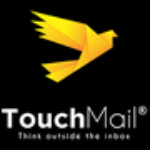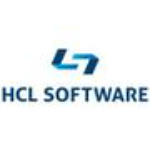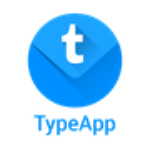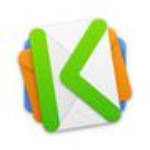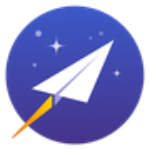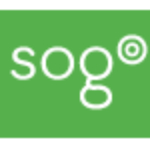TechnologyCounter provides genuine, unbiased real user reviews to help buyers make informed decisions. We may earn a referral fee when you purchase through our links, at no extra cost to you.
List of 15 Best Email Client Software
Showing 1 - 15 of 16 productsEssentialPIM, the must-have organizational tool for busy professionals and individuals alike. With its user-friendly interface and powerful features, EssentialPIM streamlines your daily tasks, from managing contacts and appointments to organizing not...Read EssentialPIM Reviews
Thunderbird, the ultimate email client designed to simplify your communication experience. With Thunderbird, you can manage all your emails, contacts, and calendar events in one place. Stay organized, secure, and connected with this reliable and user...Read Thunderbird Reviews
TouchMail is a email management software designed to effortlessly streamline your inbox and revolutionize the way you communicate. Say goodbye to cluttered emails and disorganized threads with TouchMails innovative features interface. Take control of...Read TouchMail Reviews
HCL Notes is a and versatile software designed to enhance your productivity and streamline your communication. With an array of features and tools, HCL Notes offers a seamless experience for managing emails, calendars, tasks, and more. Say goodbye to...Read HCL Notes Reviews
Mailbird is a email management solution for modern professionals. With its intuitive interface and seamless integration of multiple email accounts, Mailbird streamlines your communication and boosts your productivity. Say goodbye to cluttered inboxes...Read Mailbird Reviews
RainLoop is a and user-friendly email web client that allows you to access your emails from anywhere, on any device. Its sleek interface makes managing emails a breeze, while its advanced security features ensures the safety of your messages. Say goo...Read RainLoop Reviews
Canary Mail is a email client for todays modern professional. With sleek design, intuitive features, and powerful security, Canary Mail allows you to take control of your inbox and streamline your communication. Say goodbye to cluttered emails and he...Read Canary Mail Reviews
TypeApp, the ultimate email client for managing all your communication needs. Designed with user-friendly features and a sleek interface, TypeApp offers seamless integration across multiple accounts, making it perfect for both personal and profession...Read TypeApp Reviews
Kiwi for Gmail is a solution for all your email needs. With its sleek design and user-friendly interface, Kiwi for Gmail transforms your email experience. Say goodbye to cluttered inboxes and hello to seamless integration with all your Google apps. K...Read Kiwi for Gmail Reviews
Newton Mail is a email platform that offers a seamless and convenient experience for managing your inbox. With its sleek and user-friendly interface, Newton Mail makes organizing and responding to emails a breeze. Say goodbye to cluttered inboxes and...Read Newton Mail Reviews
Vivaldi Mail, the newest email application designed for ultimate productivity and simplicity. Developed by a team of tech experts, Vivaldi Mail delivers an intuitive is a email experience for users of all levels. With its sleek design and powerful fe...Read Vivaldi Mail Reviews
BlackBerry Work is a is a software designed to enhance productivity and collaboration in the workplace. With its user-friendly interface features, BlackBerry Work streamlines communication, tasks, and data sharing for a seamless working experience. L...Read BlackBerry Work Reviews
KMail is a email client for all your communication needs. With its advanced features interface, KMail simplifies the way you manage your emails, ensuring a seamless is a experience. Stay organized and connected with KMails powerful yet user-friendly...Read KMail Reviews
SOGo is a open-source collaboration platform that streamlines communication and productivity for individuals and organizations alike. This innovative software offers a range of features, including email, contacts, calendars, and task management, all...Read SOGo Reviews
RainLoop is a and user-friendly email web client that allows you to access your emails from anywhere, on any device. Its sleek interface makes managing emails a breeze, while its advanced security features ensures the safety of your messages. Say goo...Read RainLoop Reviews
- What Is Email Client Software?
- Top Reasons Why Businesses Need Email Client Software?
- What Are the Top Key Features of Email Client Software?
- What Are the Top Benefits of Email Client Software?
- What Are the Steps to Choose the Right Email Client Software?
- What Are the Types of Email Client Software for Different Industries?
- What Are the Technology Trends for Best Email Client Software?
- What Are the Deployment Options for Email Client Software?
What Is Email Client Software?
Email client software refers to a category of computer applications or web-based applications that are utilized for the purpose of accessing, organizing, and creating email messages. This software application is utilized for the purposes of reading, sending, and organizing electronic mail messages.
An email client, also known as a mail user agent (MUA), facilitates the retrieval of emails by users from a distant mail server. The application in question operates on a user's personal computer or mobile device, serving as a centralized repository for storing emails, contacts, and calendars.
The utilization of an client email management software offers several benefits, including the ability for users to read emails without an internet connection, the capacity to maintain emails in a structured manner, and the consolidation of robust functionalities within a unified program. Email clients often include a range of features that enhance the user experience.
These features may encompass spell-checking capabilities, an address book for storing contact information, the ability to create email groups, support for HTML and text editing, a news reader for accessing and managing news feeds, a calendar for scheduling events, link tracking functionality, and various other features that contribute to the overall functionality and usability of the email client.
Outlook, Apple Mail, and Thunderbird are widely recognized best email client software options. In general, an email client serves as a valuable tool for the management and organization of electronic correspondence. The application consolidates communications and contact information into a centralized location, providing a wide range of sophisticated functionalities.
The presence of an email client offers advantages in terms of providing a centralized platform for email management, as well as facilitating customization of features and preferences.
Top Reasons Why Businesses Need Email Client Software?
1. Enhanced collaboration is facilitated by the seamless communication between employees situated in diverse geographical areas.
2. The implementation of automated email scheduling enables the timely delivery of emails that have temporal significance.
3. The practice of email archiving is of utmost significance as it enables the preservation of essential emails for extended periods, facilitating their retrieval and reference in the long run.
4. Utilizing Optimized Contact Lists for Efficient Mass Email Distribution to a Substantial Number of Contacts
5. In order to safeguard sensitive data from unauthorized access, it is imperative to implement robust security settings.
6. Email logging is a convenient method for monitoring and recording the transmission of emails originating from within an organization.
7. The availability of customization options allows for the adaptation of emails to align with the specific brand and business requirements.
8. The streamlined inbox feature facilitates efficient email organization and retrieval for users.
9. The convenience of accessing emails on several platforms.
10. The use of real-time notifications serves the purpose of promptly informing consumers about emails that want urgent attention.
11. The integration of third-party applications enables the attainment of a comprehensive perspective by consolidating information from multiple applications.
12. The implementation of automated email tasks can effectively optimize time management for employees.
13. Automated responses are utilized to promptly and effectively address client inquiries.
14. The implementation of a work Management System is crucial in order to optimize work productivity and enhance overall efficiency.
15. The implementation of a Task Management System is crucial in order to effectively monitor and facilitate task progress. This study aims to explore the utilization of data analysis tools for the purpose of extracting valuable insights from consumer behavior, transactional emails, and marketing statistics. Productivity and efficiency
What Are the Top Key Features of Email Client Software?
The top key features of email client software include:
1. Email Organization: The email service offers several features, such as the capability to generate folders, arrange messages into labels, and categorize emails based on sender, date, subject, folder, or label.
2. Email Threading and Categorization: This feature facilitates the organization of emails into coherent conversation threads and the establishment of relevant categories through the utilization of keywords.
3. Search Capabilities: Facilitates expeditious and effortless retrieval of electronic mail through the utilization of several search criteria such as sender, subject, body content, attachments, date, and more parameters.
4. Email Attachments: Facilitates the transmission and reception of several types of attachments, including documents, photographs, and other file formats.
5. Multiplatform Capability: The software offers compatibility with several operating systems and email services.
6. Security Features: The best email client software has many security features like as encryption, password protection, spam filtering, and other mechanisms aimed at safeguarding users against undesirable information and potential hostile assaults.
7. Automation Tools: The platform offers autoresponders, message scheduling, and job automation capabilities, such as the facilitation of mass email distribution.
What Are the Top Benefits of Email Client Software?
1. Convenience: Email clients offer a user-friendly and efficient means of communication. The transmission and reception of messages can occur expeditiously, provided that internet connectivity is accessible.
2. Time Management: Client email management software provides users with the capability to establish email folders and archive emails, thereby facilitating the organization of their email correspondence and streamlining the process of retrieving certain messages, ultimately resulting in time efficiency.
3. Storage: Email clients offer ample storage capacity for emails, which may be expanded and conveniently accessed at any given time.
4. File Sharing: Email clients provide a convenient means of exchanging sizable files and data among users, eliminating the necessity of employing an external software platform.
5. Automation: Email clients have the capability to be configured in such a way that they automatically remove outdated emails, so facilitating the liberation of storage capacity and ensuring the maintenance of well-organized inboxes.
6. Security: Email clients are equipped with inherent security safeguards that safeguard user data against unauthorized access or theft, hence augmenting the overall security measures available to users.
7. Mobile Accessibility: Email clients also provide the convenience of accessing emails on mobile devices, so facilitating uninterrupted communication.
8. Integration: Email clients have the capability to seamlessly interact with other programs, including calendars, contacts, and tasks. This integration facilitates efficient management of users' daily activities.
What Are the Steps to Choose the Right Email Client Software?
1. Identify your organizational requirements: Firstly, it is important to take into account the scale of your firm and the specific nature of the email communication required. In the context of a sizable team, the implementation of services featuring shared inboxes, email automation, and automated workflows has significance.
2. Determine user needs: It is important to contemplate the manner in which users will engage with the email client interface. The identification of an appropriate client is contingent upon several crucial aspects, including but not limited to high usability, intuitive design, and an orderly inbox.
3. Consider data security: Search for software that possesses strong data security capabilities, such as encryption, two-factor authentication, and account protection.
4. Consider customization: The necessity for tailored software may arise depending on the scale and specific needs of a company. Identify a solution that exhibits seamless integration capabilities with your existing systems or offers extensive modification possibilities to accommodate diverse requirements.
5. Compare pricing and support plans: Finally, it is advisable to conduct a comparative analysis of the pricing structures and support options offered by various software suppliers in order to identify a suitable option that aligns with your financial resources.
The identification of a plan that provides professional assistance and complimentary upgrades and updates can be of significant worth.
What Are the Types of Email Client Software for Different Industries?
There exist various categories of email client software designed to cater to the diverse needs of different sectors. The suitability of various software types depends on the unique sector and requirements at hand. In the context of corporate operations, the best email client software such as Outlook, Zimbra, or IBM Notes might prove to be quite advantageous.
All of the aforementioned choices have been specifically developed to offer dependable and secure inbox and email management functionalities for organizations. Agencies can utilize advanced collaboration capabilities provided by platforms like Hiver or Missive, which encompass features such as team chat spaces, assignable tasks, and targeted notifications.
Individuals in creative fields may choose to utilize email clients such as Spark or Airmail, as these platforms offer convenient and efficient customization options for inbox layouts. Additionally, these clients give advanced capabilities such as automated and contextual inbox sorting.
Non-profit organizations may benefit from utilizing Lykas and Contactually, as both platforms are specifically designed to offer effective contact management solutions. Educators and students may discover that systems such as Tutanota, ProtonMail, or Mailfence offer notable benefits, as they incorporate end-to-end encryption to enhance security measures.
What Are the Technology Trends for Best Email Client Software?
The technology trends in the best email client software are as follows:
1. Advanced security features: The significance of security has grown in the era of digital technology, prompting email clients to introduce advanced functionalities such as encrypted communications, two-factor authentication, anti-virus protection, and malware scans.
2. Social integration: Numerous email programs already provide users with the option to integrate their accounts with widely used social networking platforms, including Facebook, Twitter, and LinkedIn. This feature facilitates the seamless sharing of content and efficient management of contacts inside a unified software.
3. Cloud computing: The utilization of cloud computing has witnessed a surge in popularity, particularly in the realm of online services. Consequently, numerous email clients have incorporated the functionality to store emails in the cloud, hence facilitating convenient accessibility across various devices.
4. Automation tools: With the increasing prevalence of email as a predominant mode of communication, the utilization of automation tools has emerged as a viable solution for optimizing specific operations. Numerous email clients already provide functionalities such as automated archiving, auto-responders, and event-triggered emails.
5. Mobile access: Top email client software has recently included the feature of mobile access, enabling users to conveniently read their emails while on the move. This technological advancement facilitates enhanced connectivity and enables individuals to promptly respond to emails while being mobile.
What Are the Deployment Options for Email Client Software?
The available deployment methods for email client software are contingent upon the specific product being implemented. In a broad sense, the available alternatives encompass internal implementation, online accessibility, and hosting solutions.
In the context of internal implementations, client email management software necessitates installation on individual computer systems or network servers. Accessing web-based content typically necessitates the installation of a web browser or a similar application on the computer of the end user.
Typically, the utilization of hosting services entails the necessity of engaging with a third-party vendor, who will undertake the installation of the program on their dedicated server, thereby facilitating internet-based access to emails.


